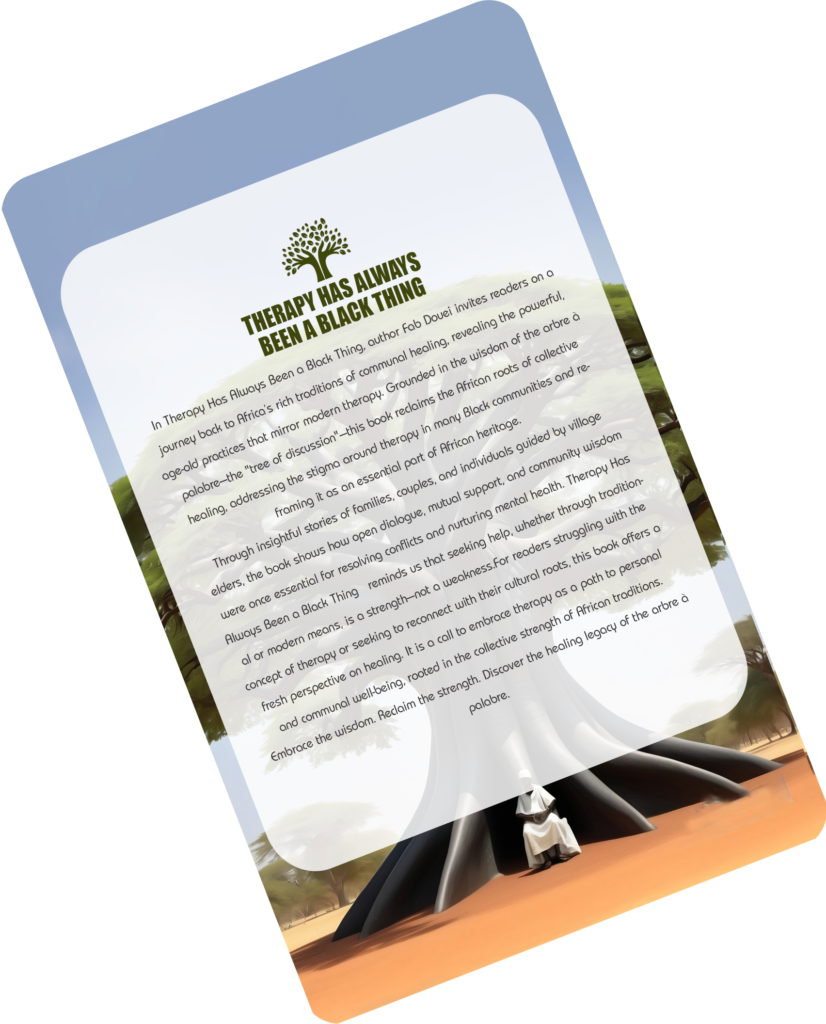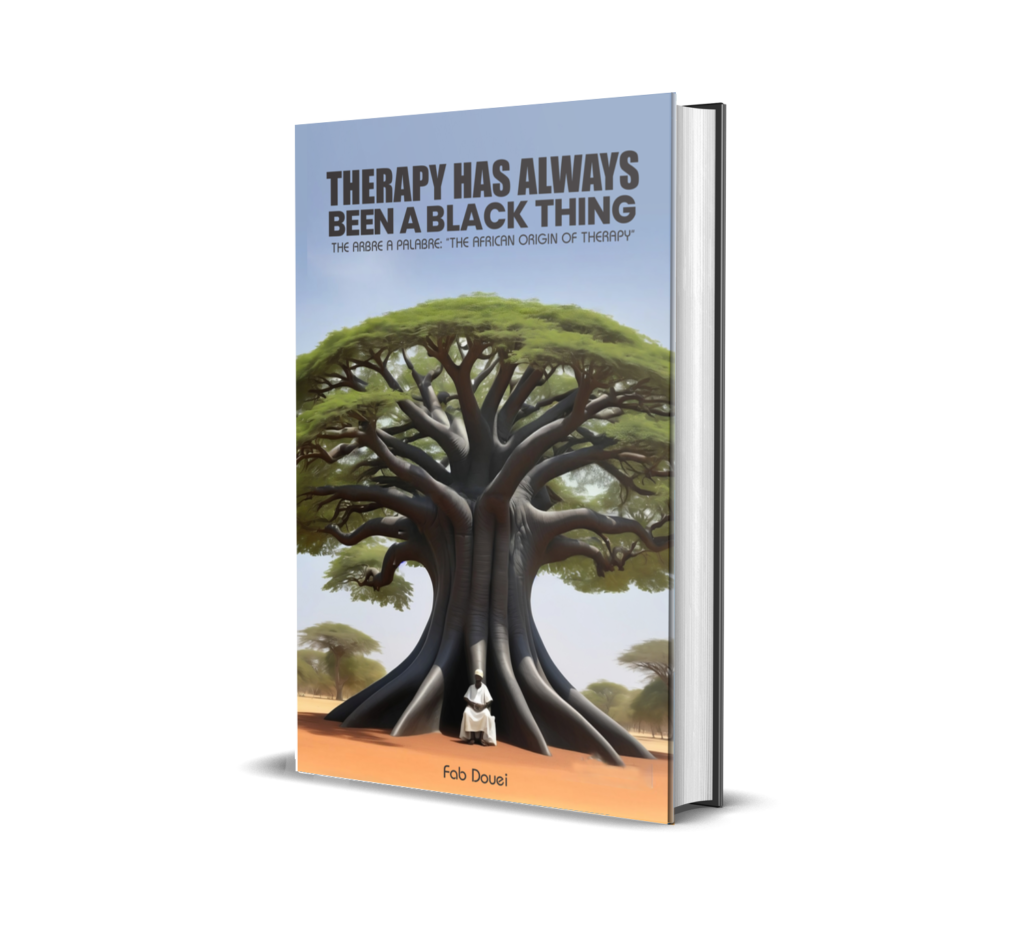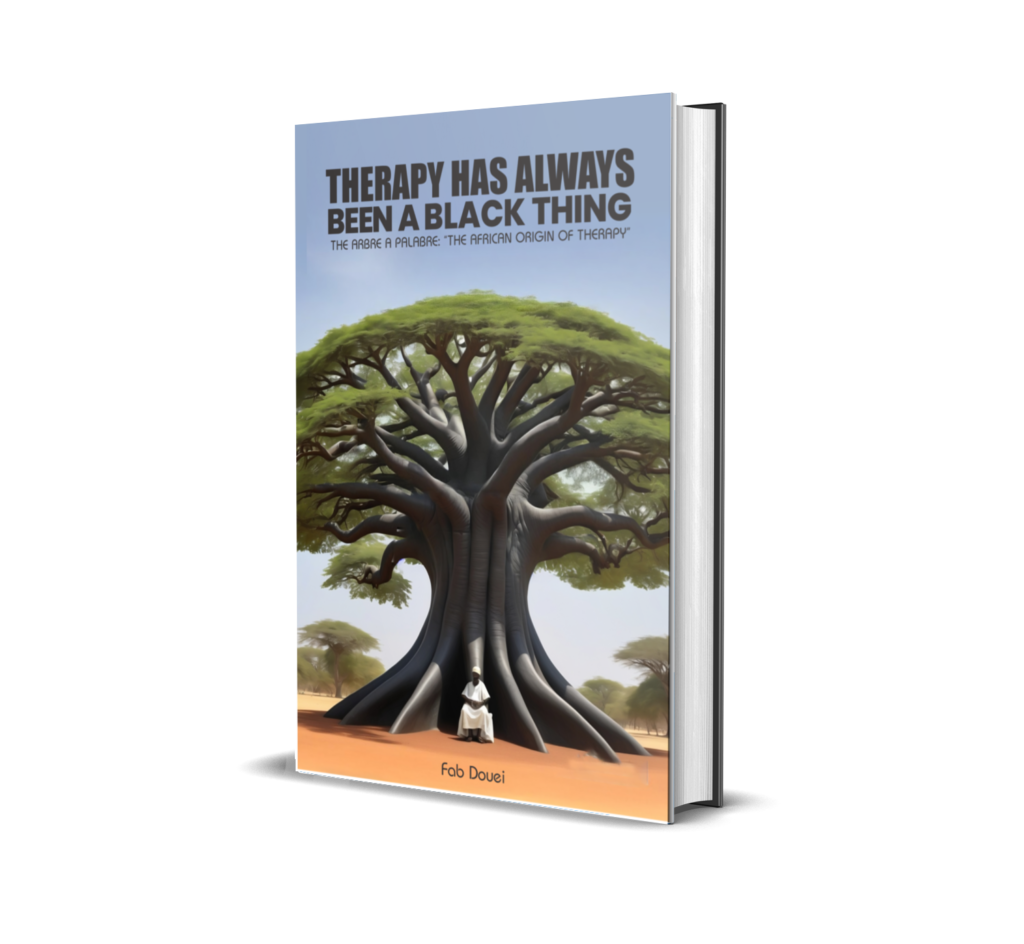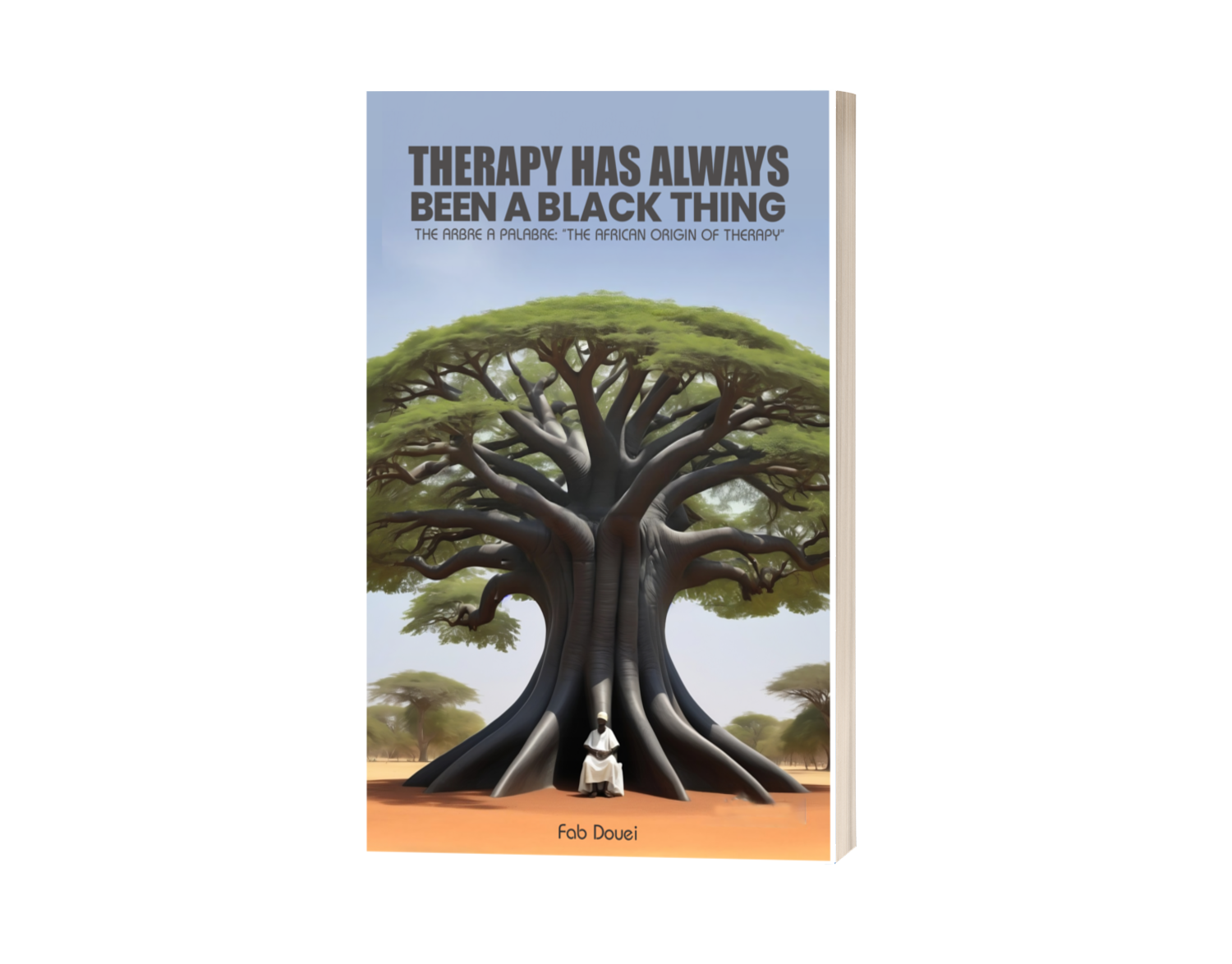SHOP

Why I Write?
Growing up, I often heard that therapy wasn’t for Africans. It was seen as something only needed by people in the West. I believed this for years, but when I faced my own struggles, I started looking for answers.
That’s when I remembered the “arbre à palabre,” a place where my ancestors would gather to talk and heal together. I understood that therapy had never been a foreign element to us-it had always been part of who we are.
The process of writing this book gave me an opportunity to share what I learned and to encourage others to seek help without shame. I write because I want people to know that they are not alone, and healing is possible for everyone.

Therapy has always been a black thing
Ebook
$9.99
120 reviews
Description
This book explores the profound wisdom of African communal healing practices and their direct connection to modern-day therapy. Centered around the “arbre à palabre”—the tree of discussion—it dives into how African traditions of collective problem-solving, emotional support, and open dialogue mirror therapeutic practices in today’s world. Drawing parallels between these ancient traditions and contemporary therapy, the book examines how African methods of collective problem-solving, storytelling, and emotional resilience can inform and enrich modern therapeutic practices. It explores themes of interconnectedness, the power of listening, and the communal role in addressing psychological and emotional challenges.
Therapy has always been a black thing
Paperback
$20.00
120 reviews
Description
This book explores the profound wisdom of African communal healing practices and their direct connection to modern-day therapy. Centered around the “arbre à palabre”—the tree of discussion—it dives into how African traditions of collective problem-solving, emotional support, and open dialogue mirror therapeutic practices in today’s world.


About The Book
A powerful reminder of how African traditions have always included ways to solve problems together and heal emotionally. The book centers on the “arbre à palabre,” or tree of discussion, where communities would gather to talk, resolve conflicts, and support one another.
Fab Douei explains how these practices relate to modern therapy and why it’s important to reconnect with these roots. Whether you are new to the idea of therapy or looking to understand its deeper connections to culture, this book is written for you.

